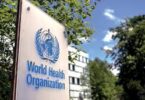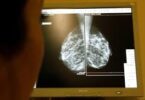F.P. Report
ISLAMABAD: The number of daily coronavirus infections remained low again as Pakistan recorded 66 Covid-19 cases and no death during the last 24 hours (Tuesday), showed the figures released by the National Institute of Health Pakistan on Wednesday morning.
As per the latest NIH data, the death toll remained the same at 30,379, whereas the number of total infections now stood at 1,530,453 after adding the fresh 66 cases.
During the last 24 hours (Tuesday), 14,058 tests were conducted throughout Pakistan whereas the positivity ratio stood at 0.47 percent. The number of patients in critical care was recorded at 71.
During the last 24 hours (Tuesday), another 68 people recovered from the Covid-19 and the number of total recoveries now stood at 1,496,690. As of Wednesday, the total count of active cases in the country was recorded at 3,384.
As many as 577,569 coronavirus cases have so far been confirmed in Sindh, 507,202 in Punjab, 219,688 in Khyber Pakhtunkhwa, 135,410 in Islamabad, 35,501 in Balochistan, 43,334 in Azad Kashmir and 11,749 in Gilgit-Baltistan.
As many as 13,564 individuals have lost their lives to the pandemic in Punjab so far, 8,106 in Sindh, 6,324 in KP, 1,024 in Islamabad, 792 in Azad Kashmir, 378 in Balochistan and 191 in Gilgit Baltistan.
Shanghai eases Covid curbs
Shanghai eased a range of Covid-19 restrictions on Wednesday in a step towards returning to normal after a two-month lockdown that confined residents of the megacity to their homes and battered China’s economy.
The commercial hub of 25 million people was closed down in sections from late March, when the Omicron virus variant fuelled China’s worst outbreak since Covid first took hold in 2020.
After some rules were gradually relaxed over the past few weeks, authorities on Wednesday began allowing residents in areas deemed low-risk to move around the city freely.
“This is a moment that we have been looking forward to for a long time,” the Shanghai municipal government said in a statement on social media.
“Because of the impact of the epidemic, Shanghai, a megacity, entered an unprecedented period of silence.”
On Wednesday morning, people were seen travelling on Shanghai’s subway and heading to office buildings, while some shops were preparing to open.
A day earlier, bright yellow barriers that had hemmed in buildings and city blocks for weeks were taken down in many areas.
The restrictions had hammered the economy of the city, snarling supply chains in China and abroad, and signs of resentment among residents emerged throughout the lockdown.
Deputy Mayor Zong Ming told reporters Tuesday that the easing will impact about 22 million people in the city.
Malls, convenience stores, pharmacies and beauty salons will be allowed to operate at 75 percent capacity, while parks and other scenic spots will gradually reopen, she added.
But cinemas and gyms remain closed, and schools — shut since mid-March — will slowly reopen on a voluntary basis.
Buses, subway and ferry services will also resume, transport officials said.
Taxi services and private cars will also be allowed in low-risk areas, permitting people to visit friends and family outside their district.
– Not normal yet –
But the city government warned that the situation was not yet normal.
“At present, there is still no room for relaxation in consolidating the achievements of epidemic prevention and control,” it said.
China has persisted with a zero-Covid strategy, which involves rapid lockdowns, mass testing and long quarantines to try and completely eliminate infections.
But the economic costs of that policy have mounted, and the Shanghai government said Wednesday that “the task of accelerating economic and social recovery is becoming increasingly urgent”.
E-commerce professional Chen Ying said ahead of the easing that she still planned to work from home but might treat her two-year-old son to a long-awaited walk outside.
“We should have been free to begin with, so don’t expect me to be deeply grateful now they’ve given it back to us,” she told AFP.
Factories and businesses were also set to restart work after being dormant for weeks.






